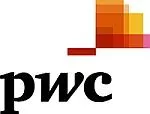- within Finance and Banking topic(s)
- in United States
- with readers working within the Banking & Credit and Business & Consumer Services industries
The Kano State government recently introduced a 5% consumption tax payable on the consumption of goods and services in any hotel, restaurant, eatery, bakery, takeaway, suya spot, shopping mall, store, event centre and other similar businesses within the State.
Introduction
The Kano State House of Assembly recently passed into law, the Kano State Revenue Administration (Amendment) Law 2017, which imposed 5% consumption tax on consumers of goods and services bought or rendered in any hotel, restaurant, eatery, bakery, takeaway, suya spot, shopping mall, store, event centre and other similar businesses within the State. The tax is to be charged and deducted at source by business operators and remitted to the State Revenue Service.
Initial Thoughts
The introduction of this new tax, though driven by the desire to raise revenue, it may also have been inspired by the Taxes and Levies (Approved List for Collection) Act, Cap T2, Laws of the Federation 2004 as amended by an Official Gazette dated 9 June 2015, where consumption tax was introduced as a tax that may be levied on "Hotels, Restaurants and Event Centres" within any State in Nigeria.
From early indications, it seems the application of the Kano State consumption tax extends beyond the scope of the enabling Act which provides that the tax is to be levied on hotels, restaurants and event centres only. In effect, there is no legal basis to impose the tax on shopping malls, stores and other businesses not specifically stated under the enabling Act.
Impact on businesses
There remains a fundamental issue regarding the appropriateness of a consumption tax in addition to the existing Value Added Tax.
Affected organisations and business owners are challenging the legality of scope and impact of the imposition of the tax on their operations. For the various business owners, this could mean an increase in price of their goods or a reduced profit margin where the additional cost cannot be fully passed on to consumers.
An increase in the price of goods is likely to discourage more small scale businesses from transiting from informal to the formal sector as this could make them less competitive.
In a recent case, the Federal High Court in Abuja granted an interim injunction restraining the Kano State Revenue Service from imposing the tax on certain goods and services. However a final decision is yet to be reached in this case.
Takeaway
Governments at all levels have been under pressure to increase internally generated revenue and it is clear that they are seeking for ways to fund their respective budgets. However, the overall impact on individuals and businesses should be considered especially in view of the harsh economic environment. Pending the determination of the case challenging the imposition of the tax to certain businesses, other business that are specifically covered should take steps to comply with the law or otherwise seek legal advice.
The content of this article is intended to provide a general guide to the subject matter. Specialist advice should be sought about your specific circumstances.
[View Source]

